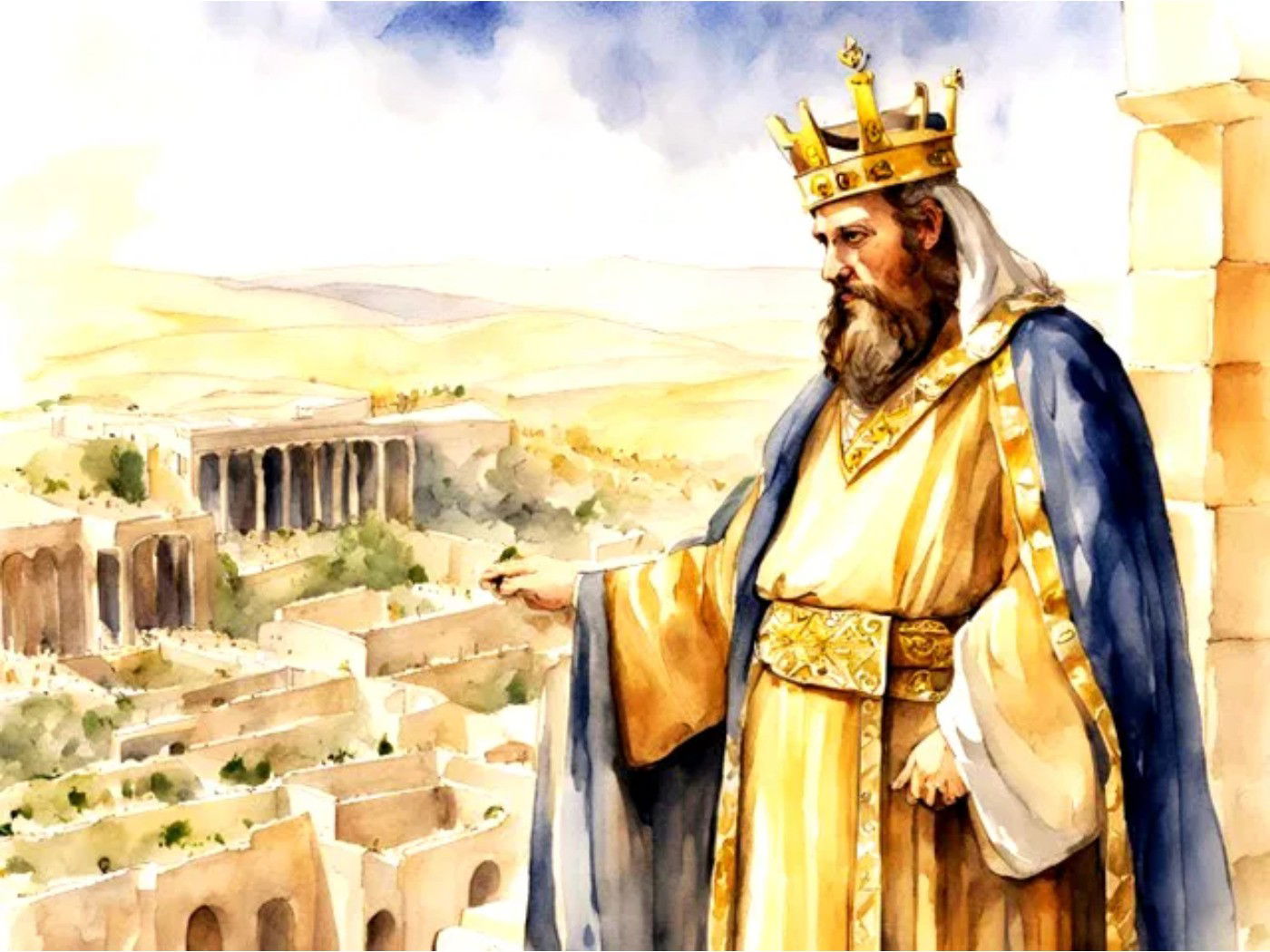The king Solomon, son of the king David and of Bathsheba, is one of the figures central in the Bible, known for his wisdom, wealth, and works grand. Governed Israel during 40 years, building the Temple of Jerusalem and for being author of several books biblical, as Proverbs, Ecclesiastes, Songs and some Psalms.
The reign of Solomon is frequently remembered by the teachings of wisdom, justice, and devotion to God, but also, for a period of failure and great decline at the end of his reign.

Solomon ascended to the throne after the death of his father, David. When God appeared to him in a dream and offered him anything he desired, Solomon asked for wisdom to govern the people of Israel with justice. God was pleased with his request, granted him wisdom, and, in addition, wealth and honor.
Described as a man of great wisdom, possessing an uncommon ability for judgment and understanding. Furthermore, he was a skilled builder, responsible for the construction of the Temple of Jerusalem.
One of the most well-known stories that exemplifies his wisdom is the judgment between two women who claimed to be the mother of the same baby. Solomon proposed to cut the child in half, and the true mother revealed herself by preferring to give up the baby rather than see her child dead, demonstrating the justice and wisdom of the king.
How many wives?
Solomon became known for having 1000 women, being 700 wives and 300 concubines. Moreover, his involvement with foreign women caused him to worship other gods, displeasing God. Although Solomon had many women, the Bible mentions only Rehoboam, son of Naamah, an Ammonite, as his successor to the throne.
After reigning forty years over Israel, Solomon died and his son Rehoboam succeeded him. Due to his distancing from God, the kingdom was divided, and only the tribe of Judah would continue to be led by the dynasty of David. The other tribes of Israel (Northern kingdom) rebelled against his successor and elected another king for themselves.
Lessons We Learn And Main Facts From King Solomon's Life
The life of Solomon brings us many lessons. His pursuit of wisdom over riches teaches us to value knowledge and understanding. His peaceful reign shows the importance of justice and diplomacy.
However, the Bible also reports his failures, such as idolatry in the last years of his life, reminding us of the importance of faithfulness to God. The life of Solomon, with its ups and downs, offers profound lessons about leadership, wisdom, and devotion.
The first years of his reign were marked by:
- His sincere request for wisdom - His request to God for discernment to govern the people of Israel resulted in great blessings for Solomon.
- Construction of the temple - He built the temple in honor of the Lord, which would house the Ark of the Covenant.
- His wise judgment - Solomon governed wisely and justly, as demonstrated in the case of the baby and the prostitutes (1 Kings 3:16-28).
- His extraordinary wisdom - God endowed him with great intelligence, reasoning, knowledge, and understanding of everything; he composed thousands of proverbs and songs, and discussed flora and fauna, etc.
- His rise and great dominion (1 Kings 4:21).
- His covenant with the Lord (1 Kings 9).
- His excellent reputation - Many were sent by kings from all over the land to visit and consult Solomon, including the Queen of Sheba.
- Splendor of his court and palaces - In addition to the temple, Solomon built the royal palace, cities, ships, and many artistic and military artifacts.
However, the last years of Solomon's reign were marked by failure and great decline:
- On a moral level - Solomon indulged in lust and sensuality: he married 1,000 foreign women.
- On a political level - Solomon made political and commercial agreements with pagan peoples and nations; he also imposed high tributes on his own people (1 Kings 12:4).
- On a spiritual level - He did not keep the covenant with God, marrying pagan women and aligning himself with idolatrous peoples. Because of this, God allowed his enemies to rise against him.
You could also read:
